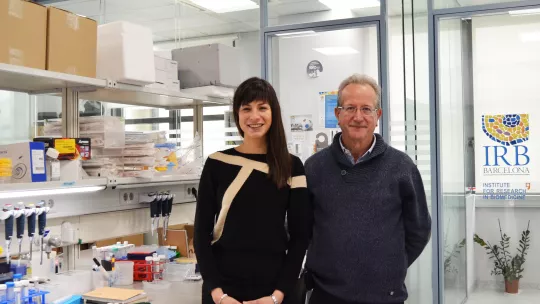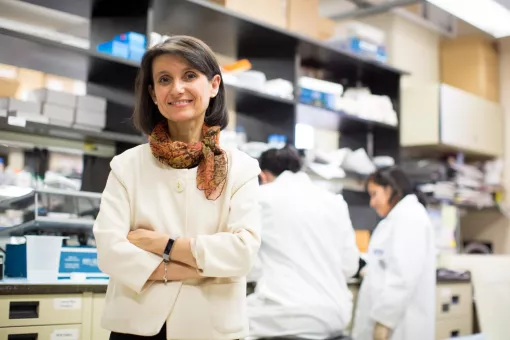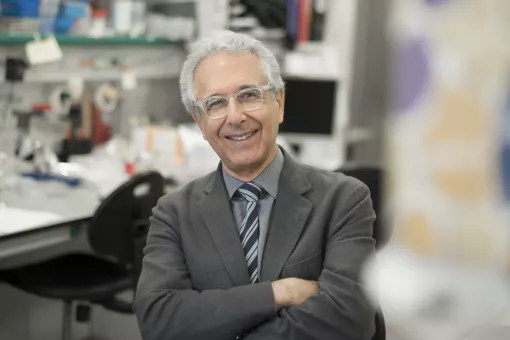Images
Over 100 ASPIRE awards have been granted across 12 countries and 58 institutions since the programme was launched in 2018.
The Mark Foundation for Cancer Research has announced 12 outstanding research projects to receive its latest round of ASPIRE awards. Grantees from top academic institutions in Germany, Israel, Netherlands, Spain, and the US have been awarded more than $4 M for projects that aim to answer key feasibility and proof-of-concept questions in an accelerated time frame (ASPIRE Award) or that seek to build on such demonstrated feasibility/proof-of-concept (longer duration ASPIRE II Award). Ten ASPIRE and two ASPIRE II Awards have been granted, among the former, one has been given to a project led by Drs. Cristina Mayor-Ruiz at IRB Barcelona, in collaboration with Dr. Antoni Riera also at IRB Barcelona and Dr. Alejo Efeyan from the Centro Nacional de Investigaciones Oncológicas (CNIO).
“The Mark Foundation ASPIRE awards support innovative ideas worldwide that have the potential to solve high-impact problems in cancer research. The high-risk nature of these projects, often based on new ideas that have not generated extensive preliminary data, tends to place them outside the scope of other funding opportunities,” noted Dr. Ryan Schoenfeld, Chief Executive Officer of The Mark Foundation. “These latest grants utilize innovative technologies to enable research aimed at solving critical challenges across multiple cancer types, including breast cancer, lung cancer, melanoma, and prostate cancer.”
The project led by Dr. Cristina Ruiz-Mayor, head of the Targeted Protein Degradation and Drug Discovery lab, aims to provide new and effective treatments for cancer types in which mTORC1 is dysregulated. To this end, they plan to take advantage of the enormous potential of targeted protein degradation to achieve high levels of selectivity and potency against mTORC1. The scientists will use a two-pronged strategy: they will create direct, selective mTORC1 degraders and identify binders of upstream regulators to subtly target this complex. The project may mark the beginning of the development of novel therapeutic approaches for mTORC1-dependent cancers and thus help address the corresponding unmet clinical need. The project will be carried out in collaboration with and Dr. Antoni Riera, head of the Research Unit on Asymmetric Synthesis and Dr. Alejo Efeyan at the Centro Nacional de Investigaciones Oncológicas (CNIO).
“Launched in 2018, The Mark Foundation ASPIRE programme has provided more than 100 grants totalling over $42 M across 12 countries and 58 institutions,” added Raymond N. DuBois, MD, PhD, Executive Chairman of The Mark Foundation. “We are committed to increasing our global commitment to accelerate the pace of scientific discovery and the development of new cancer therapies and diagnostics.”
For more detailed information on each project awarded, visit The Mark Foundation website.
About IRB Barcelona
The Institute for Research in Biomedicine (IRB Barcelona) pursues a society free of disease. To this end, it conducts multidisciplinary research of excellence to cure cancer and other diseases linked to ageing. It establishes technology transfer agreements with the pharmaceutical industry and major hospitals to bring research results closer to society, and organises a range of science outreach activities to engage the public in an open dialogue. IRB Barcelona is an international centre that hosts 400 researchers and more than 30 nationalities. Recognised as a Severo Ochoa Centre of Excellence since 2011, IRB Barcelona is a CERCA centre and member of the Barcelona Institute of Science and Technology (BIST).






